A Guide to Catholic Holy Days in 2025: Observing the Sacred Throughout the Year
Related Articles: A Guide to Catholic Holy Days in 2025: Observing the Sacred Throughout the Year
Introduction
With enthusiasm, let’s navigate through the intriguing topic related to A Guide to Catholic Holy Days in 2025: Observing the Sacred Throughout the Year. Let’s weave interesting information and offer fresh perspectives to the readers.
Table of Content
A Guide to Catholic Holy Days in 2025: Observing the Sacred Throughout the Year
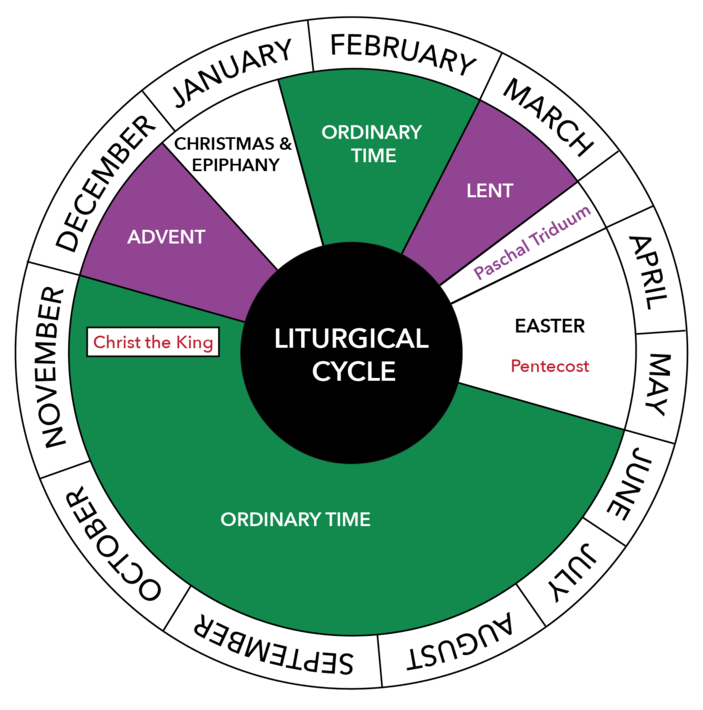
The Catholic liturgical calendar is a vibrant tapestry woven with days of celebration, remembrance, and reflection. Each Holy Day, marked by its unique significance, offers an opportunity for spiritual growth and a deepening connection with the faith.
This guide explores the key Catholic Holy Days in 2025, providing a comprehensive overview of their historical context, theological meaning, and practical observance. Understanding these days fosters a deeper appreciation for the richness of Catholic tradition and its enduring relevance in contemporary life.
January
- January 1st: Solemnity of Mary, Mother of God: This feast celebrates Mary’s role as the Mother of Jesus and her unique place in the history of salvation. It is a day to reflect on the divine motherhood and the importance of Mary as a model of faith and devotion.
- January 6th: Epiphany: This feast commemorates the arrival of the Magi, representing the revelation of Jesus Christ to the world. It signifies the universality of God’s love and the calling of all people to embrace the light of Christ.
February
- February 2nd: The Presentation of the Lord: This feast celebrates the presentation of Jesus in the Temple, forty days after his birth. It highlights the fulfillment of Jewish law and foreshadows Jesus’ role as the true Temple of God.
March
- March 19th: St. Joseph, Husband of the Blessed Virgin Mary: This feast honors St. Joseph, the foster father of Jesus, as a model of paternal love, faith, and hard work. He is invoked for protection, guidance, and finding employment.
April
- April 9th: Palm Sunday: This day commemorates Jesus’ triumphant entry into Jerusalem, marking the beginning of Holy Week. The waving of palm branches symbolizes the crowds’ acclamation of Jesus as King and their hope for his reign.
- April 10th: Holy Thursday: This day remembers the institution of the Eucharist and the washing of the feet by Jesus, demonstrating his humility and love for his disciples. It is a day for reflection on the importance of serving others and celebrating the gift of the Eucharist.
- April 11th: Good Friday: This day commemorates the crucifixion and death of Jesus Christ. It is a day of mourning, reflection, and contemplation on the immense sacrifice of Jesus for the redemption of humanity.
- April 12th: Holy Saturday: This day marks the period between the death and resurrection of Jesus. It is a time of waiting, anticipation, and silent prayer.
- April 13th: Easter Sunday: The central celebration of the Christian faith, Easter Sunday commemorates the resurrection of Jesus Christ from the dead. It is a day of joy, hope, and renewal, signifying the triumph of life over death and the promise of eternal life.
May
- May 1st: St. Joseph the Worker: This feast honors St. Joseph’s role as a model for all workers, recognizing the dignity of labor and its connection to God’s plan. It is a day to reflect on the importance of work as a means of contributing to the common good.
- May 13th: Our Lady of Fatima: This feast commemorates the apparitions of the Blessed Virgin Mary to three shepherd children in Fatima, Portugal. It is a day for prayer for peace, conversion, and the consecration of the world to the Immaculate Heart of Mary.
June
- June 11th: Corpus Christi: This feast celebrates the Real Presence of Christ in the Eucharist. It is a day for processions and adoration, emphasizing the importance of the Eucharist as the source and summit of the Christian life.
July
- July 25th: St. James the Apostle: This feast honors St. James, one of the twelve apostles, known for his zeal and martyrdom. He is the patron saint of Spain and is invoked for protection and guidance.
August
- August 15th: Assumption of the Blessed Virgin Mary: This feast celebrates the bodily assumption of Mary into heaven. It signifies the triumph of Mary’s faith and her unique role as the Queen of Heaven.
September
- September 8th: Nativity of the Blessed Virgin Mary: This feast celebrates the birth of the Blessed Virgin Mary. It is a day to reflect on Mary’s role as the mother of Jesus and her importance in the history of salvation.
- September 29th: Archangels Michael, Gabriel, and Raphael: This feast honors the three archangels, who are powerful heavenly beings serving God. It is a day to invoke their protection and intercession.
October
- October 4th: St. Francis of Assisi: This feast honors St. Francis, a renowned Italian saint known for his love for nature, poverty, and peace. He is invoked for protection of animals, environmental stewardship, and peacemaking.
- October 28th: Feast of Saints Simon and Jude: This feast honors the apostles Simon and Jude, known for their faith and dedication to the Gospel. They are invoked for help in difficult situations and for protection against deception.
November
- November 1st: All Saints Day: This feast celebrates all the saints, known and unknown, who have attained eternal life with God. It is a day to honor the holiness of the Church and to seek inspiration from the lives of the saints.
- November 2nd: All Souls Day: This day commemorates all the faithful departed. It is a day for prayer and remembrance of the deceased, offering comfort and solace to those who have lost loved ones.
December
- December 8th: Immaculate Conception of the Blessed Virgin Mary: This feast celebrates the conception of Mary without original sin. It signifies the unique grace bestowed upon Mary and her role as the Mother of God.
- December 25th: Christmas Day: This feast celebrates the birth of Jesus Christ. It is a day of joy, peace, and celebration of God’s love for humanity.
- December 26th: St. Stephen, First Martyr: This feast honors St. Stephen, the first Christian martyr, who died for his faith. He is invoked for protection against persecution and for strength in defending the truth.
- December 27th: St. John the Apostle: This feast honors St. John, one of the twelve apostles, known for his love for Jesus and his mystical experiences. He is invoked for guidance, strength, and inspiration.
- December 28th: Holy Innocents: This feast commemorates the massacre of the infants in Bethlehem by King Herod. It is a day of reflection on the innocence of children and the importance of protecting them.
- December 31st: Holy Family: This feast celebrates the Holy Family of Jesus, Mary, and Joseph. It is a day to reflect on the importance of family life and to seek their intercession for strong and loving families.
Understanding the Importance of Catholic Holy Days
Catholic Holy Days are more than just days off from work or school. They are opportunities for spiritual growth, renewal, and a deeper connection with the faith. By observing these days, Catholics can:
- Deepen their understanding of Catholic doctrine and tradition: Each Holy Day has a unique historical and theological significance, providing insights into the richness and complexity of the Catholic faith.
- Strengthen their relationship with God: Holy Days offer opportunities for prayer, reflection, and contemplation, fostering a deeper connection with God through participation in liturgical celebrations and personal devotion.
- Embrace the call to holiness: The lives of the saints and the events commemorated on Holy Days serve as models for living a holy life and striving for spiritual perfection.
- Contribute to the life of the Church: By participating in Holy Day Masses and celebrations, Catholics contribute to the vibrant life of the Church and strengthen the bonds of community.
- Live out the Gospel message in daily life: The themes of love, forgiveness, service, and justice, emphasized in the liturgical readings and reflections on Holy Days, inspire Catholics to live out the Gospel message in their daily interactions with others.
FAQs about Catholic Holy Days
What is the difference between a Holy Day of Obligation and a feast day?
A Holy Day of Obligation is a day when Catholics are required to attend Mass. Feast days are days of celebration, but attendance at Mass is not obligatory. In 2025, the Holy Days of Obligation are:
- January 1st: Solemnity of Mary, Mother of God
- Ascension Thursday: (Date varies)
- August 15th: Assumption of the Blessed Virgin Mary
- November 1st: All Saints Day
- December 8th: Immaculate Conception of the Blessed Virgin Mary
- December 25th: Christmas Day
How are Holy Days celebrated?
Holy Days are typically celebrated with special Masses, processions, and other devotional practices. Many parishes also organize special events, such as concerts, lectures, or social gatherings, to enhance the celebration.
What are some practical ways to observe Holy Days?
- Attend Mass: Participating in the liturgy is a central way to observe Holy Days.
- Read Scripture: Reflecting on the readings for the day can deepen understanding of the themes and significance of the Holy Day.
- Pray: Dedicate time to personal prayer, reflecting on the meaning of the day and seeking God’s grace.
- Perform acts of charity: Engage in acts of kindness and service to others, embodying the spirit of the Holy Day.
- Share the faith: Talk to others about the faith, share the joy of the Holy Day, and invite others to participate in the celebration.
Tips for Observing Catholic Holy Days
- Plan ahead: Mark the Holy Days on your calendar and plan your schedule accordingly to ensure you can attend Mass or participate in other events.
- Prepare your heart: Take time for reflection and prayer before the Holy Day to prepare your heart for the celebration.
- Engage with the liturgy: Pay attention to the readings, hymns, and prayers during Mass, allowing them to nourish your soul.
- Seek the guidance of your parish priest: Reach out to your priest for resources and guidance on observing the Holy Days in a meaningful way.
- Share the joy: Spread the spirit of the Holy Day by sharing it with family and friends, inviting them to participate in celebrations and reflections.
Conclusion
The Catholic Holy Days provide a rich tapestry of opportunities for spiritual growth, renewal, and a deeper understanding of the faith. By embracing these days with intentionality and devotion, Catholics can strengthen their relationship with God, live out the Gospel message in their daily lives, and contribute to the vibrant life of the Church. As we journey through the year, let us embrace the sacred moments offered by the Catholic Holy Days, allowing them to illuminate our path and deepen our connection with the divine.

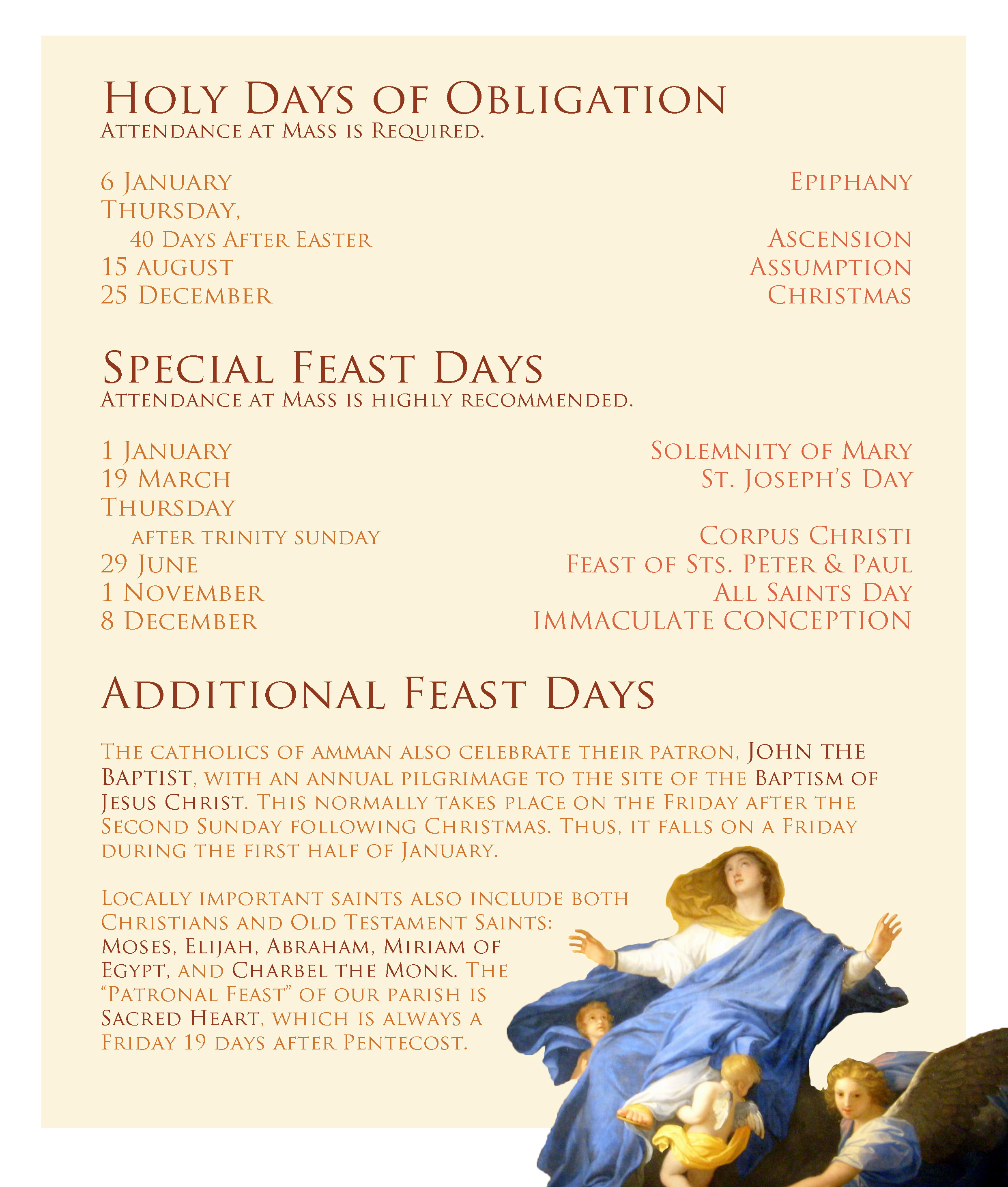
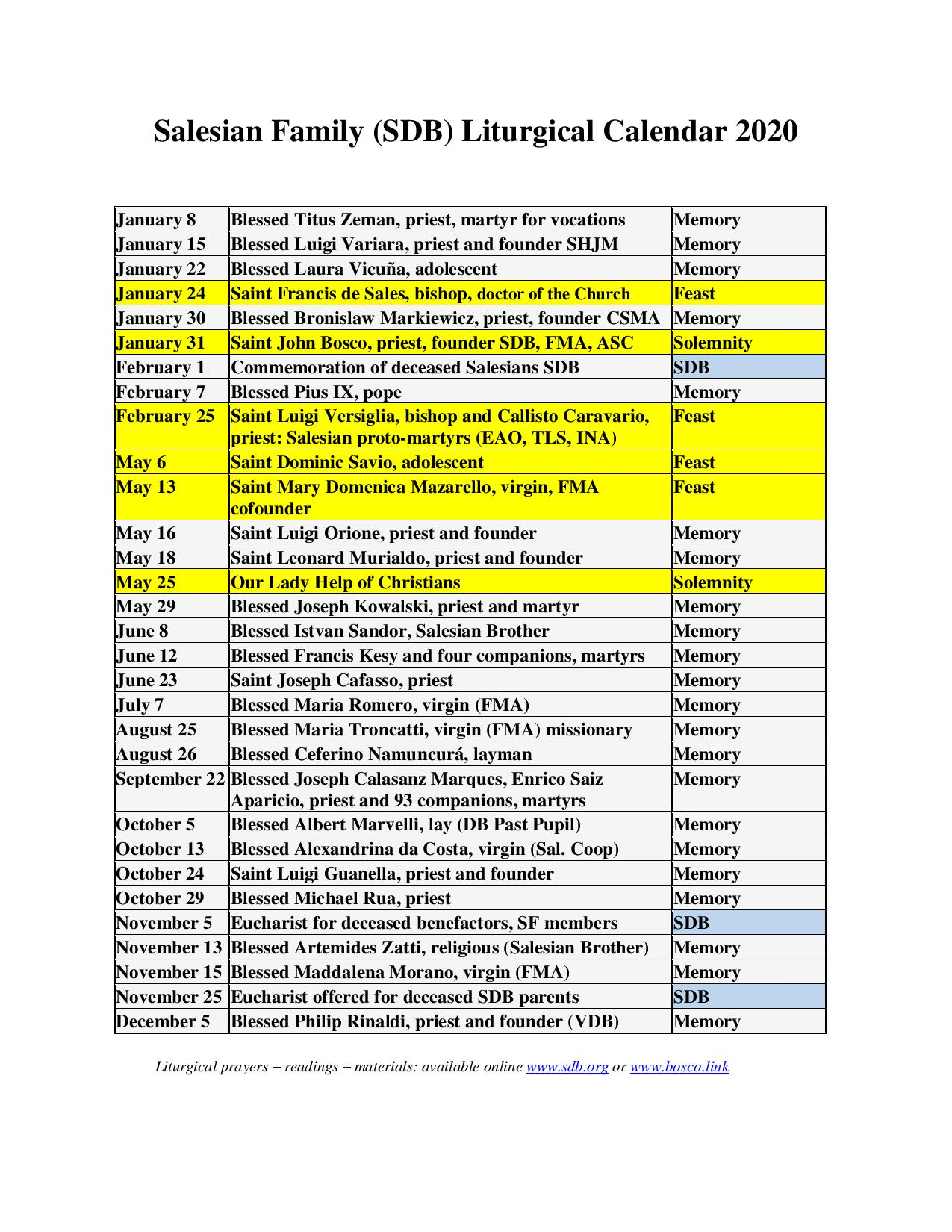

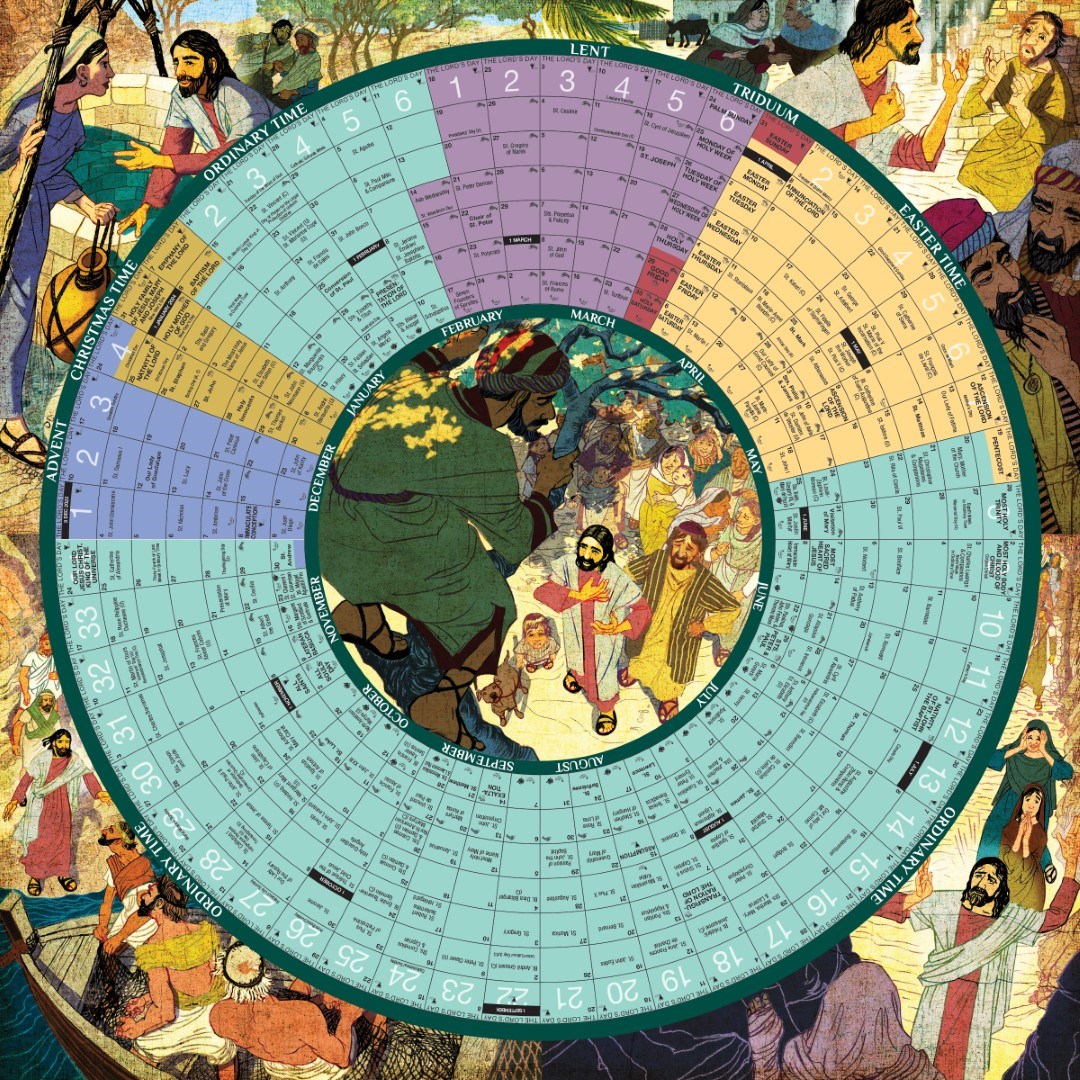
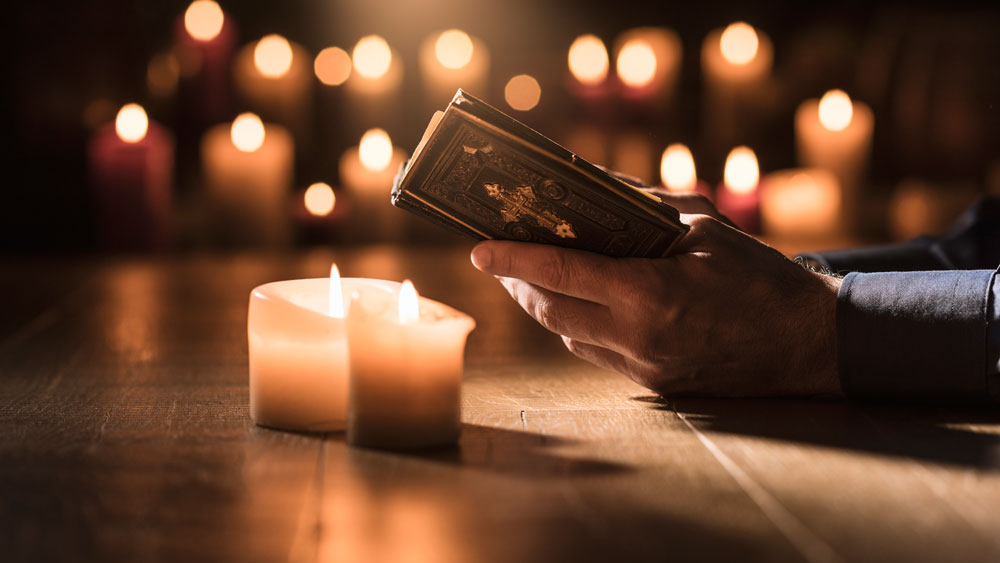


Closure
Thus, we hope this article has provided valuable insights into A Guide to Catholic Holy Days in 2025: Observing the Sacred Throughout the Year. We appreciate your attention to our article. See you in our next article!